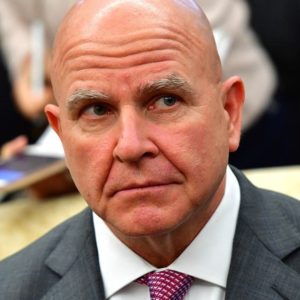America’s Forgotten War & Confronting China Today
Study the Korean War and the lessons it offers for U.S.-China competition.
July 31–August 4, 2023
Washington, DC
Since the end of the Cold War, China has embarked on a comprehensive military modernization program to prepare the People’s Liberation Army (PLA) for the possibility of modern great-power warfare. This effort was catalyzed by Beijing’s shock over the collapse of the Soviet Union and the lopsided U.S. victory over Iraq in the first Gulf War. Beijing is preparing for a high-tech war, leveraging information technology, artificial intelligence, and possibly, biotechnology to gain advantages in future conflict. The PLA trains for war over Taiwan, against India, and against potential enemies on the Korean peninsula and in the South and East China Seas. While Beijing has not yet decided to use force to further its strategic objectives, coercion and possible escalation to full-scale conflict are key pillars of its grand strategy, driving its technological modernization strategy and increasingly, its economic statecraft.
Warfare is not foreign to the Chinese Communist Party (CCP). Indeed, it is deeply embedded in its historical DNA. The CCP came to power in a violent struggle against the KMT and the Japanese who had invaded the mainland. After prevailing in the Chinese Civil War, the CCP waged war against U.S. and allied forces in the Korean War, supported the North Vietnamese in their war against the U.S., fought a series of battles against India, invaded Vietnam to prevent unification, and has used violent coercion against its Southeast Asian neighbors to further its territorial ambitions.
Led by Asia Studies expert and former Defense official Dan Blumenthal, this seminar will examine China’s past and current use of force in the context of its strategic culture and traditions, and study the CCP’s military campaigns against its neighbors. Fellows will examine China’s modern military history and current planning to assess the threat of a Taiwan invasion, the CCP’s plans for future warfare, and the possibility of hot war between China and the U.S.
Image: J-11B fighter jet conducts tactical maneuver, Chinese People’s Liberation Army
Dan Blumenthal & H.R. McMaster on the China Nightmare
This course is part of our Security Studies Program. Fellows may apply to one or more seminars, as fits their interest and schedule.

Dan Blumenthal is a senior fellow at the American Enterprise Institute, where he focuses on East Asian security issues and Sino-American relations. Mr. Blumenthal has served in and advised the US government on China issues for more than a decade.

Dan Blumenthal is a senior fellow at the American Enterprise Institute, where he focuses on East Asian security issues and Sino-American relations. Mr. Blumenthal has served in and advised the US government on China issues for more than a decade.
Before joining AEI, Mr. Blumenthal served as senior director for China, Taiwan, and Mongolia at the US Department of Defense. He served as a commissioner on the congressionally mandated US-China Economic and Security Review Commission from 2006 to 2012, and he was vice chairman of the commission in 2007. He also served on the Academic Advisory Board of the congressional US-China Working Group.
Mr. Blumenthal is the author of “The China Nightmare: The Grand Ambitions of a Decaying State” (AEI Press, November 2020) and coauthor of “An Awkward Embrace: The United States and China in the 21st Century” (AEI Press, November 2012).
He has testified before Congress and has been published in The Atlantic, Commentary, Foreign Policy, The Hill, Los Angeles Times, The National Interest, National Review, The New York Post, The New York Times, Newsweek, RealClearWorld, and The Wall Street Journal, among other outlets. His broadcast appearances include C-SPAN, Yahoo News, Bloomberg Radio, and many top-rated talk radio programs.
Mr. Blumenthal has a J.D. from Duke Law School, an M.A. from the School of Advanced International Studies at Johns Hopkins University, and a B.A. from Washington University in St. Louis. He also attended Capital Normal University in Beijing, China, where he focused on Chinese language studies.

Mike Gallagher
Mike Gallagher served for four terms in the U.S. House of Representatives as Wisconsin’s 8th Congressional District representative. Previously, he served seven years on active duty in the U.S. Marine Corps, including two deployments to Iraq.

Aaron MacLean
Aaron MacLean is a senior fellow at Hudson Institute and the host of the School of War podcast. Previously, he was senior foreign policy advisor and legislative director to Senator Tom Cotton of Arkansas. Aaron served on active duty as a U.S. Marine for seven years, deploying to Afghanistan as an infantry officer in 2009–2010.

Vance Serchuk
Vance Serchuk is Executive Director of the KKR Global Institute and an Adjunct Senior Fellow at the Center for a New American Security. Prior to joining KKR, Mr. Serchuk served for six years as the senior national security advisor to Senator Joseph Lieberman (I-Connecticut).

Daniel Blumenthal
Dan Blumenthal is a senior fellow at the American Enterprise Institute, where he focuses on East Asian security issues and Sino-American relations. Mr. Blumenthal has served in and advised the US government on China issues for more than a decade.

Christian Brose
Christian Brose is a Senior Fellow at the Carnegie Endowment for International Peace and the Head of Strategy at Anduril Industries, prior to which he served as staff director of the Senate Armed Services Committee. He was also responsible for leading the production, negotiation, and passage of four National Defense Authorization Acts, which set policy and authorized spending for all U.S. national defense activities.

Matthew Kroenig
Matthew Kroenig is a Professor in the Department of Government and the Edmund A. Walsh School of Foreign Service at Georgetown University. A 2019 study in Perspectives on Politics ranked him as one of the top 25 most-cited political scientists of his generation. He has served in several positions in the U.S. Department of Defense and the intelligence community in the Bush and Obama administrations.

H.R. McMaster
H. R. McMaster is the Fouad and Michelle Ajami Senior Fellow at the Hoover Institution, Stanford University. Previously, he served as the 26th assistant to the president for National Security Affairs and as a commissioned officer in the United States Army for 34 years before retiring as a Lieutenant General. He is author of Battlegrounds: The Fight to Defend the Free World.
Matt Turpin
Matthew Turpin is a visiting fellow at the Hoover Institution, where he specializes in U.S. policy toward the People’s Republic of China, economic statecraft, and technology innovation. He is also a senior advisor at Palantir Technologies.

Eric S. Edelman
Ambassador Eric S. Edelman is Counselor at the Center for Strategic and Budgetary Assessments. He retired as a career minister from the U.S. Foreign Service on May 1, 2009. He has served in senior positions at the Departments of State and Defense as well as the White House, where he led organizations providing analysis, strategy, policy development, security services, trade advocacy, public outreach, citizen services, and congressional relations.